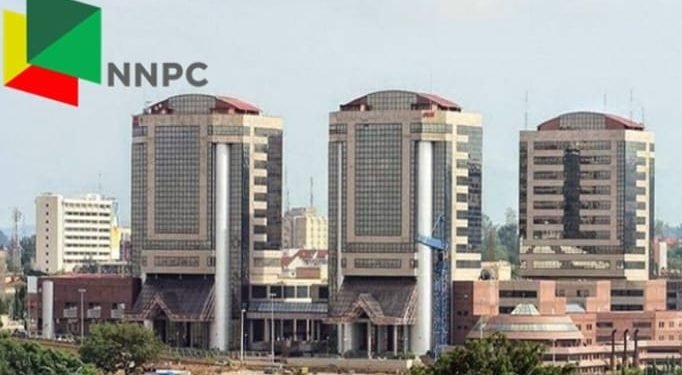President Bola Ahmed Tinubu’s Policy Advisory Council has proposed the sale of the major stakes of the Nigerian National Petroleum Company Limited (NNPCL) in the upstream, midstream, and downstream sectors of the oil and gas industry.
Also read; Tribunal releases weekly report of Obi, LP, Atiku, PDP suit against Tinubu
In a report dated May 2023, the Energy and Natural Resources sub-committees of the advisory council estimates that the Federal Government will earn about US$17 billion from the sale of the NNPCL’s majority stakes in the oil and gas assets.
The council set up by then President-elect Bola Ahmed Tinubu is made up of 12 individuals, including Austin Avuru, the former CEO & Executive Director of Seplat Energy Plc (NGX: SEPLAT).
The members of the council include: Austin Avuru, Olu Verheijen, AbdulRasaq Isa, Bashir Bello, Ifeanyi Ajuluchukwu, Doyin Akinyanju, Tinuade Sande, Ahmad Zakari, George Etomi, Nasiru Wada, Mohammed Abbas, and Segun Lawson.
Sale of NNPCL’s stakes: The council proposed that the government sales NNPCL’s majority stakes in the oil and gas assets.
It recommended the sale of NNPCL’s oil and gas assets and transit of the company to a minority shareholder with a target to raise $17.4 billion from the assets.
The council advised the new government to, “sell down interests in JVs to a minority position and develop an operating model that eliminates cash calls. Sell down/divest interests in the refineries and build the NLNG operating model.
“Bring remaining Brownfield Project on-stream including 10 critical gas projects, oil and gas projects post FDP and pre-FID.
“Bring Greenfield Projects to FID to grow production, such projects included deepwater oil and NAG (Non-associated gas) projects, develop offshore gas hub, and FLNGs (Floating LNGs).”
The council also recommended that the NNPCL should form global strategic partnerships with other co-venturers.
The report further recommended that “within the first 100 days, constitute a team to evaluate portfolios of upstream, midstream and downstream.
“Decision analysis to carry out a high-level valuation and establish the range of consideration, commence preliminary engagements with potential buyers and financiers.
“In the first 18 months, with assets up to $4.5 billion, the government should appoint an external investment banker, legal advisor and financial advisor to identify and test transaction principles with key buyers.
“They should establish the transaction process and execution timeframe and assess market conditions for the transaction,” the report explained.
In February 2023, the Nigerian National Petroleum Company Limited (NNPCL) said the transfer of the complete assets and liabilities of the Nigerian National Petroleum Corporation (NNPC) have been transferred to it.
Femi Adesina, a Special Adviser to past President Buhari had in the same month, said that NNPC has a huge asset base in excess of US$60 billion.
Petrol Subsidy: The council proposed the deregulation of petrol pricing and implementing the Federal Direct Cash Transfer Programme, with the disbursement of US$8 billion in Direct Cash Transfer to the poorest 30 million Nigerians.
President Tinubu had in his inaugural address on 29th May, 2023 after taking the oath of office, stated that “subsidy is gone,” effectively ending the federal government petrol subsidy regime.
His announcement was swiftly followed with shutdown of filling stations and hike in fuel prices across the country. NNPC limited on 31 May released a statement on fuel price adjustment, stating it’s outlets will now sell fuel between N480.00 per liter in Lagos to over N550.00 in some Northern cities.
Former President Buhari had sought and obtain the approval of the National Assembly to take a loan of US$800m from the World Bank to cushion the effects of subsidy removal.
The Buhari Administration had in January 2022 proposed an 18 months extension to National Assembly for the implementation of the Petroleum Industry Act (PIA) which stipulates the removal of subsidy, thus setting the June 2023 as the last month of subsidy payment.
Investogist reported in April that the National Economic Council (NEC) had asked the Federal Government to suspend the planned removal of subsidies on Petroleum products.
Re-organize NUPRC, NMDPRA and NCDMB: The council advised the president to consider integrating NUPRC, NMDPRA, and NCDMB into a single regulator or include all midstream activities into NUPRC’s scope.
The Nigerian Upstream Petroleum Regulatory Commission (NUPRC) has the statutory responsibility of ensuring compliance to petroleum laws, regulations and guidelines in the Upstream Oil and Gas Sector.
The Nigerian Upstream Petroleum Regulatory Commission (NUPRC) was established in August 2021 pursuant to the passage of the Petroleum Industry Act, 2021. It replaced the Department of Petroleum Resource.
The Nigerian Midstream and Downstream Petroleum Regulatory Authority (NMDPRA) is the regulator for technical and commercial operations of the midstream and downstream petroleum industry.
NMDPRA was created in August 2021 in line with the Petroleum Industry Act (PIA) 2021.
The Nigerian Content Development & Monitoring Board (NCDMB) is vested with the mandate to make procedures that will guide, monitor, coordinate and implement the provisions of the NOGICD Act signed into law on April 22, 2010.
NCDMB was established in 2010 by the Nigerian Oil and Gas Industry Content Development (NOGICD) Act.
Administration of NNPCL and Regulators: The council advised the president to headhunt competent, tested, reformed focused leaders in NNPCL and to ensure the company discharges its function as a commercial entity as stipulated in the PIA.
The council advised that NNPC should also be strengthened and placed in a position where it would be paying taxes, royalties and profits to the Federation Account and properly regulated by NUPRC, NMDPRA and NCDMB.
It also advised the same headhunt be done at NUPRC and NMDPRA and to set milestones goals that can be achieved at the earliest possible time.
The advisory council urged President Tinubu to mandate NNPCL, NUPRC and NMDPRA to close out outstanding divestments and contract issues for project delivery clarity.
It further urged the president to strip NNPCL of policy-making roles and keep NCDMB within its mandate as prescribed by the Local Content Act.
Insecurity in oil producing States: The council advised the president to end insecurity in oil-producing states, particularly in Imo, Delta, Ondo, Rivers, Bayelsa and Akwa-Ibom by engaging key political and community stakeholders.
The council called for the reforming of the operations of the military task force with clearly defined key performance indicators (KPIs) and consequent management to tackle deficiencies.
Investment in the Oil and Gas sector: The council advised the President to improve financing in the sector via a debt repayment framework and a transition to market prices for gas.
It stressed the need for Tinubu’s government to put robust policies in place in order to unlock Nigeria’s energy potential to fuel economic growth and diversification while improving energy security sustainably.
The council proposed that the government should work to raise Nigeria’s oil and gas production to 1.8 million barrels per day (mbpd) and 3.5 billion cubic feet (bcf) in the next 18 months ending December 2024.
It urged President Tinubu to ensure the government achieves a daily crude oil production target of 2.5 million barrels per day and 5 billion cubic feet (bcf) of gas daily by May 2027.
It also advised the Tinubu administration to restore the nation’s lost revenue by restoring oil and gas production with a view to ensuring that Nigeria Liquefied Natural Gas (NLNG) plants run at 100 per cent capacity and unlock 12 gigawatts (GW) of stranded gas-fired power generation.
The council further proposed that the government should work towards growing the country’s oil and gas production capacity to 4 million barrels per day (bpd) and 12bcf/d to domestic and export by 2030 and 25-30GW of power generation by 2030.
Diversification and Job creation: The council stressed the need for the government to convert oil and gas into industrial products and feedstocks, aggregate demand in industrial clusters and prioritise export-oriented projects to improve bankability.
The council acknowledged the need for Nigeria to transition to Net-zero carbon emissions by 2060, but advised that gas be used as a transition fuel to displace diesel and biomass, reduce emissions in operations, and drive energy efficiency.
Nnamdi Maduakor is a Writer, Investor and Entrepreneur
























































